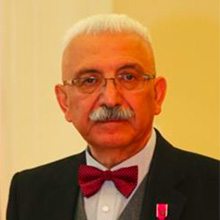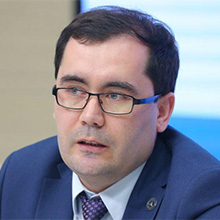Publications
Strengthening the Legal Status of the Ombudsman for Children  By Doniyor Turaev, Deputy Director of the Legislation and Parliamentary Research Institute under the Oliy Majlis of the Republic of Uzbekistan
By Doniyor Turaev, Deputy Director of the Legislation and Parliamentary Research Institute under the Oliy Majlis of the Republic of Uzbekistan
Currently, systematic work is under way in Uzbekistan to implement the provisions of the Convention on the Rights of the Children, the legal and institutional framework for protecting the rights and interests of children is improving. As the international experience shows, today, more than twenty countries have a specialized and independent institution – the Ombudsman for Children. The first office of Ombudsman for Children was established in Norway in 1981. By the beginning of the 21st century, many countries had significantly intensified their work to protect the rights of the child and create some special authorized institutions in this area, and this was due to the need to better ensure the implementation of obligations under the Convention on the Rights of the Child.
READ MORE
Publications
Delimitation, Demarcation and Cartographic Manipulation in the Wake of the 44 Days War  By Hayk KOTANJIAN, Lieutenant General (Ret.), D.Sc., Professor of Political Science of the RA, RF, USA (state studies-strategic security studies), Full Member of the Academy of Military Sciences of the RF
By Hayk KOTANJIAN, Lieutenant General (Ret.), D.Sc., Professor of Political Science of the RA, RF, USA (state studies-strategic security studies), Full Member of the Academy of Military Sciences of the RF
In the wake of the 44-day war in 2020, an unprecedented escalation of the process of delimitation and demarcation of the Armenian-Azerbaijani borders has been launched. This was done contrary to the principles and procedure for border delimitation and demarcation recommended by the OSCE Secretariat. The unparalleled pressure on the Armenian population from Karabakh was accompanied by subsequent attempts to undermine the settlement process under the auspices of the OSCE Minsk Group co-chairmanship. Among the arguments substantiating claims to include Nagorno-Karabakh in Azerbaijan, Baku authorities refer to the Azerbaijani-language toponymy, which allegedly has a long history. READ MORE
Publications
What's behind the Fresh Tensions between Iran and Azerbaijan?
 By Fuad Shahbazov, Baku-based independent regional security and defence analyst
By Fuad Shahbazov, Baku-based independent regional security and defence analyst
In the period immediately after the 44-day Karabakh war, Baku-Tehran relations remained on the level of pragmatic co-operation, until the new conservative political establishment ascended to power in Iran. Since then, Tehran’s rhetoric against Azerbaijan has shifted from that of “partnership” to open threats that explicitly neglect the partnership atmosphere. Relations between Baku and Tehran have always been unstable, particularly at the beginning of the 2000s. However, they rekindled when both countries became engaged in regional infrastructure and transit projects. READ MORE
Publications
Armenia should Talk to Turkey Directly, but not at the Expense of Artsakh  By Benyamin POGHOSYAN, PhD, Chairman, Center for Political and Economic Strategic Studies
By Benyamin POGHOSYAN, PhD, Chairman, Center for Political and Economic Strategic Studies
Turkey’s President Recep Tayyip Erdogan announced on September 19 that Armenia’s Prime Minister Nikol Pashinyan had requested a meeting, via a message transmitted by the Georgian prime minister. Erdogan said that “Armenia should take positive steps” if it wishes for such a meeting. Erdogan is alluding to the opening of the so-called “Zangezur Corridor”, which he believes is a political issue that will be resolved soon, as will Armenia-Azerbaijan relations. The corridor refers to a ground transportation link that would connect Azerbaijan to its exclave of Nakhichevan through Armenia’s southern Syunik region. If we try to translate Erdogan’s diplomatic language, the Turkish president clearly states that he is ready to accept Armenian leadership’s proposal for dialogue if Armenia continues to fulfil Turkey’s demands. READ MORE
Publications
Gender equality and women's suffrage in modern Uzbekistan By Gulnoza ISMAILOVA, Doctor of Law Sciences (Habilitation à Diriger des Recherches),
Vice-rector for Science and Innovation at the University of World Economy and Diplomacy
In modern democratic States, elections are the foundation of the principle of democracy, it is the main form of expression of the will of citizens and the form of realization of people's sovereignty. Participation in elections makes it possible to exercise the right to participate in the management of the affairs of society and the state, as well as control over the formation and activities of both Representative and Executive authorities. READ MORE
Publications
The Strategy of Actions: A Guideline for Uzbek Reforms  By Eldor TULYAKOV, Executive Director, Development Strategy Centre
By Eldor TULYAKOV, Executive Director, Development Strategy Centre
Furkat YUNUSOV, Head of Department, Development Strategy Centre
Four years ago, Uzbekistan launched reforms critical to the development of its economic sphere. Based on the Strategy of Actions, the document responsible for outlining the priorities for the country’s growth for the period of 2017-2021, as a metric we have arrived at initial finding, with several indicators demonstrating progress, most notably the areas of public administration, social and civic institutions, mass-media, economic advances, among others. The past four years have evidenced precise results and demonstrated more advanced methods to take these priority areas forward. READ MORE
Publications
Armenia and Turkey Try Again to Normalise Relations. This Time It May Work  By Benyamin POGHOSYAN, PhD, Chairman, Center for Political and Economic Strategic Studies
By Benyamin POGHOSYAN, PhD, Chairman, Center for Political and Economic Strategic Studies
The possible normalisation of Armenia–Turkey relations have always been in the spotlight of the South Caucasus geopolitics. Turkey recognised Armenian independence back in 1991 but refused to establish diplomatic relations, and in April 1993 closed its border with Armenia in response to the advance of Armenian forces in the first Karabakh war. Since then, Turkey has put forward several preconditions for normalising relations with Armenia: the withdrawal of Armenian forces from Karabakh, the end to the Armenian genocide international recognition campaign, and the official recognition of Armenia–Turkey borders by independent Armenia. At the same time, Armenia–Turkey relations were a part of the broader regional geopolitics. Russia struggled to regain its influence in the South Caucasus while the US viewed the emerging Turkey–Georgia–Azerbaijan strategic partnership as a critical tool to counter Russian efforts. READ MORE
Publications
Assessing Armenians’ Geopolitical Situation  By Alan Whitehorn, Professor Emeritus in Political Science, The Royal Military College of Canada
By Alan Whitehorn, Professor Emeritus in Political Science, The Royal Military College of Canada
Armenia is at yet another critical time. The war losses were substantial and impacted greatly. Violent Azerbaijani-Armenian border incidents continue, with property damage, military personnel injuries and deaths. The risks ahead are significant. Accordingly, it is crucial to assess the geopolitical situation that confronts Armenia, commencing first with key problems and challenges and then exploring some opportunities.
Amongst the pressing issues is the fact that demographically Armenia has far less manpower than Azerbaijan, even if women were conscripted too. Armenia’s population has been declining significantly due to outmigration and this pattern has been accelerating after the recent Karabakh war and various phases of the Covid pandemic. An army historically based on conscription needs to address its critical declining population base. READ MORE